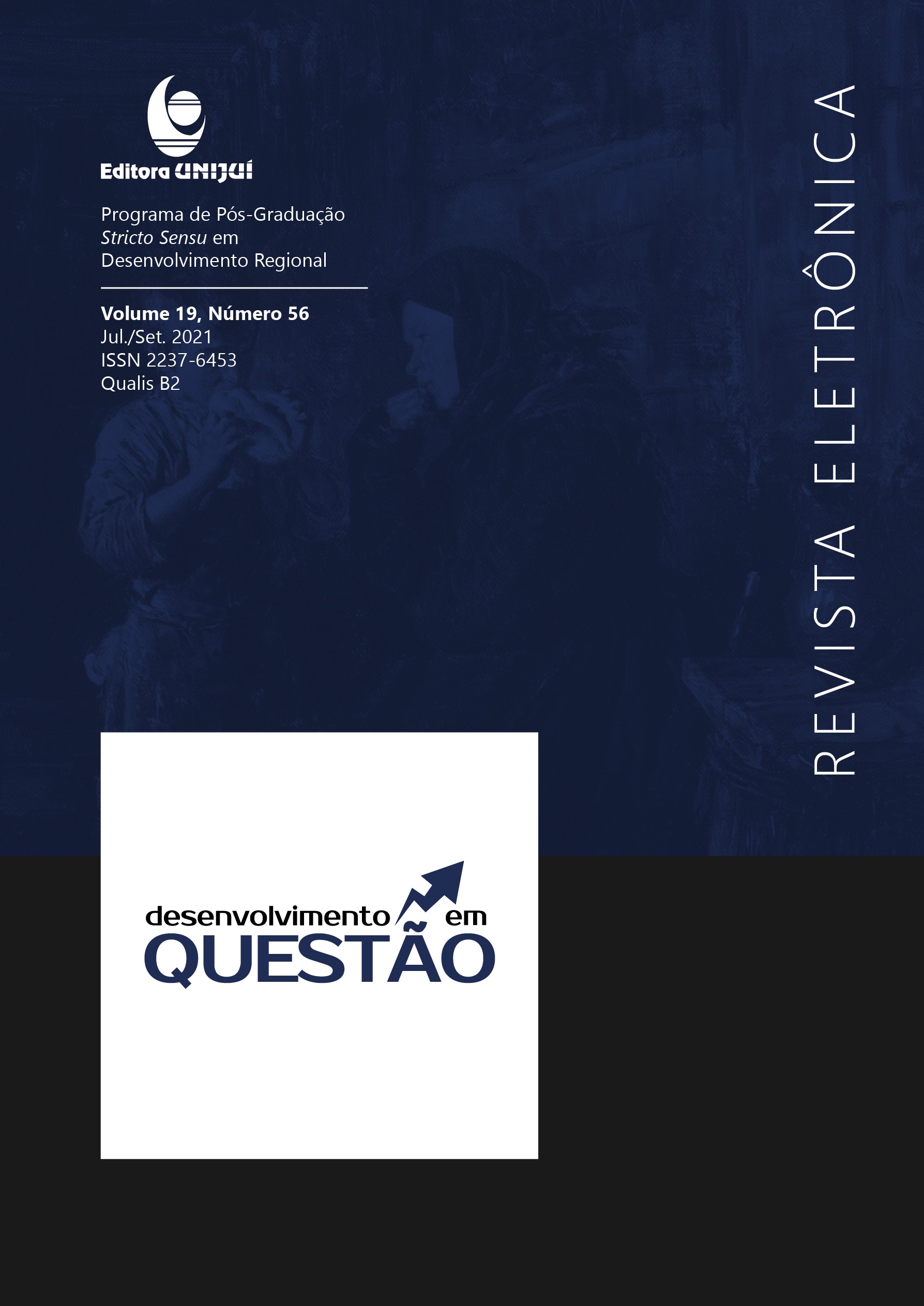THE COVID-19 PANDEMIC AND THE IMPACTS ON THE SUPERMARKET SECTOR: AN ANALYSIS OF THE PANORAMA OF A MUNICIPALITY IN MINAS GERAIS
THE COVID-19 PANDEMIC AND THE IMPACTS ON THE SUPERMARKET SECTOR: AN ANALYSIS OF THE PANORAMA OF A MUNICIPALITY IN MINAS GERAIS
DOI:
https://doi.org/10.21527/2237-6453.2021.56.11836Keywords:
COVID-19. Supermarket sector. Pandemic impacts.Abstract
The state of hygienic and sanitary emergency that Covid-19 caused in the world generated changes in mobility, income, and lifestyle of the society, thus impacting important factors that influence consumer behavior. The present study aims to analyze how the consequent transformations of the new coronavirus affected the consumption behavior and, consequently, the organizations, regarding the operational strategies of the supermarket sector during the extended social distance period. The approach used in the research is qualitative and quantitative. The analyzed data were collected through the application of questionnaires with six supermarkets in a city in the interior of Minas Gerais - primary data, and researching on websites specialized in consumption analysis - secondary data. The results demonstrate that there were changes in demand in practically all categories of products sold by the supermarket sector, and that changes such as frequency of purchases, sales channels, and payment with the Brazilian emergency assistance made the establishments look for strategies to adapt to the new needs, besides to plan their demands and supply capacities. Among the adaptations implemented, hygiene measures and promoting distance between people in physical stores stand out concerning offline sales channels. The sector still needs to improve its strategies to online channels, mainly in rural establishments, however it was already possible to notice that the sector has adapted to the use of mobile applications to face many of the current challenges.
Downloads
Published
How to Cite
Issue
Section
License
By publishing in Revista Desenvolvimento em Questão, authors agree to the following terms:
All works are published under the Creative Commons Attribution 4.0 International License (CC BY 4.0), which allows:
Sharing — to copy and redistribute the material in any medium or format;
Adaptation — to remix, transform, and build upon the material for any purpose, even commercially.
These permissions are irrevocable, provided that the following terms are respected:
Attribution — authors must be properly credited, a link to the license must be provided, and any changes made must be indicated.
No additional restrictions — no legal or technological measures may be applied that legally restrict others from doing anything the license permits.
Notices:
The license does not apply to elements that are in the public domain or covered by legal exceptions.
The license does not grant all necessary rights for specific uses (e.g., image rights, privacy, or moral rights).
The journal is not responsible for the opinions expressed in the articles, which are the sole responsibility of the authors. The Editor, with the support of the Editorial Board, reserves the right to suggest or request modifications when necessary.
Only original scientific articles presenting research results of interest that have not been previously published or simultaneously submitted to another journal with the same purpose will be accepted.
Mentions of trademarks or specific products are intended solely for identification purposes and do not imply any promotional relationship by the authors or the journal.
License Agreement (for articles published from 2025 onward): Authors retain the copyright to their article and grant Revista Desenvolvimento em Questão the right of first publication.











